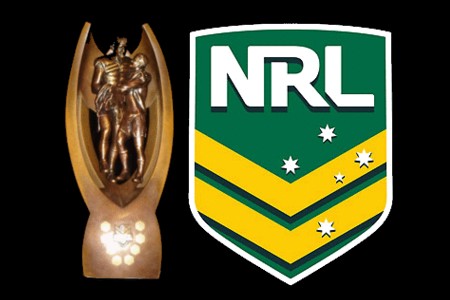For all the good in Rugby League, the big hits, the length of the field tries, the emotion, one aspect of the game that needs urgent attention is the rule that says players signed before round 10 can simply change their mind at any time.
When a player ‘signs’ with another club prior to the Round 13 cut off, they don’t actually sign a contract, but instead a ‘letter of intent’ to play for a different club.
Upon signing one of these, the new club is quite within their rights to assume that player will honour his commitment to play for said club,and thus make recruitment decisions with this in mind.
On Sunday, the absolute ridiculousness of these ‘contracts’ was shown when Sione Mata’utia, who has signed a letter of intent to play for the Bulldogs in 2016, publically stated ‘our (the three brothers) first option is to stay in Newcastle’.
If their intent is to stay with Newcastle, why sign the letter of intent with the Bulldogs in the first place?
Are the Bulldogs aware of this thinking or do they expect the brothers to be in Dogs colours in 2016?
Last season James Tedesco was announced as a marquee signing for the struggling Raiders, only to backflip on his decision to join the club. Andrew Fifita ‘signed’ for the Dogs, only for the club to pulled the contract before it was official.
Josh Papalii was announced as heading to the Eels only for Canberra to redouble their efforts to re-sign a player who had theoretically signed elsewhere.
What is the point?
If two parties come to terms on an agreement and sign off on it, it should be official, binding and the end of the story.
If the player, or the club, want to back out of the signed contract, it should be up to them to negotiate terms to terminate.
A player who is signed by a rival club before the deadline can really use the faux contract as leverage in negotiations with their original club. Having already shown they’re willing to walk if their terms aren’t met, clubs will go that extra mile to re-sign star players.
The fact that Canberra were openly trying to convince Anthony Milford to backflip on a signed ‘contract’ up until round ten earlier this season is a direct slap in the face to the contract set up.
For anyone wanting to offer up the obvious ‘what is a player isn’t sure of his decision’ argument, the answer is simple … don’t sign a contract unless you are sure.
Obviously there are special circumstances that lead to players backing out of contracts, as there are with decisions made in everyday life.
These would be dealt with just the say way they are if they occur after the Round 13 cut off.
It’s too easy to sign a letter of intent with a new club, change your mind after re negotiating with your current club, and back out of the deal, leaving the club stranded.
Clubs base important decisions around contracts signed, and plans can be thrown into disarray based on a last minute backflip, that is in no way against the rules.
Why would a club bother signing a star player before round 13, if they have to sit nervously and wait to see if the player in question honours the deal when he can just as easily say “nah”.










